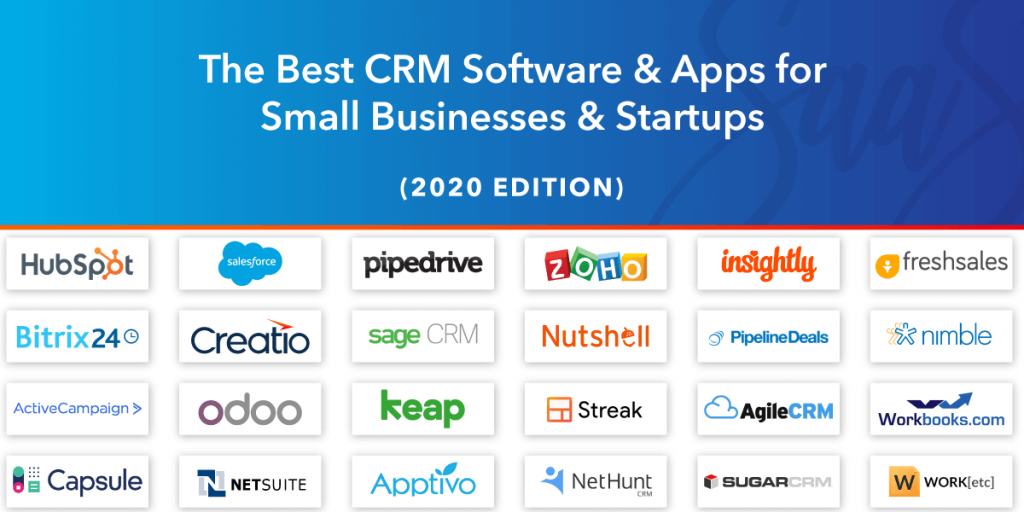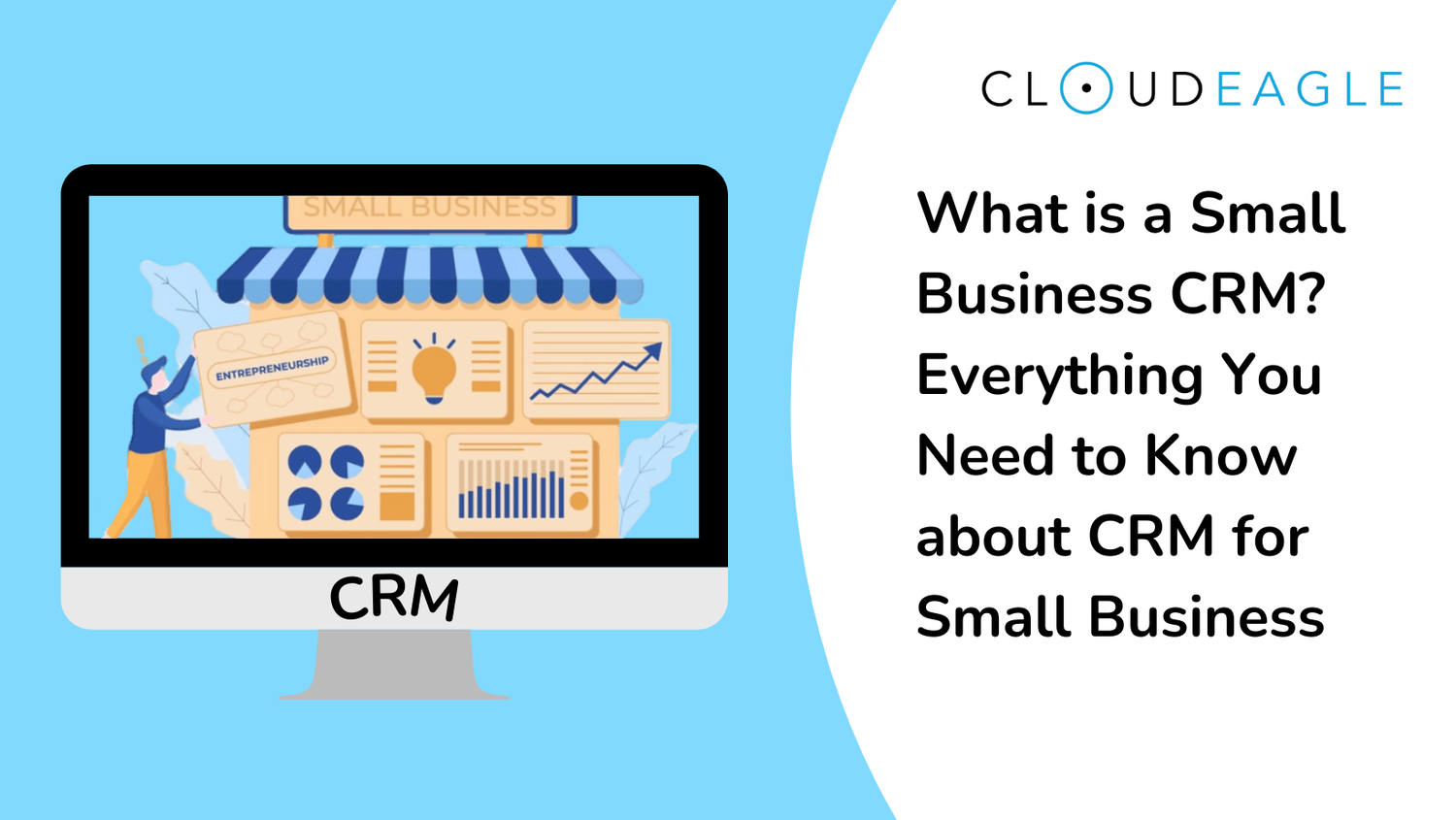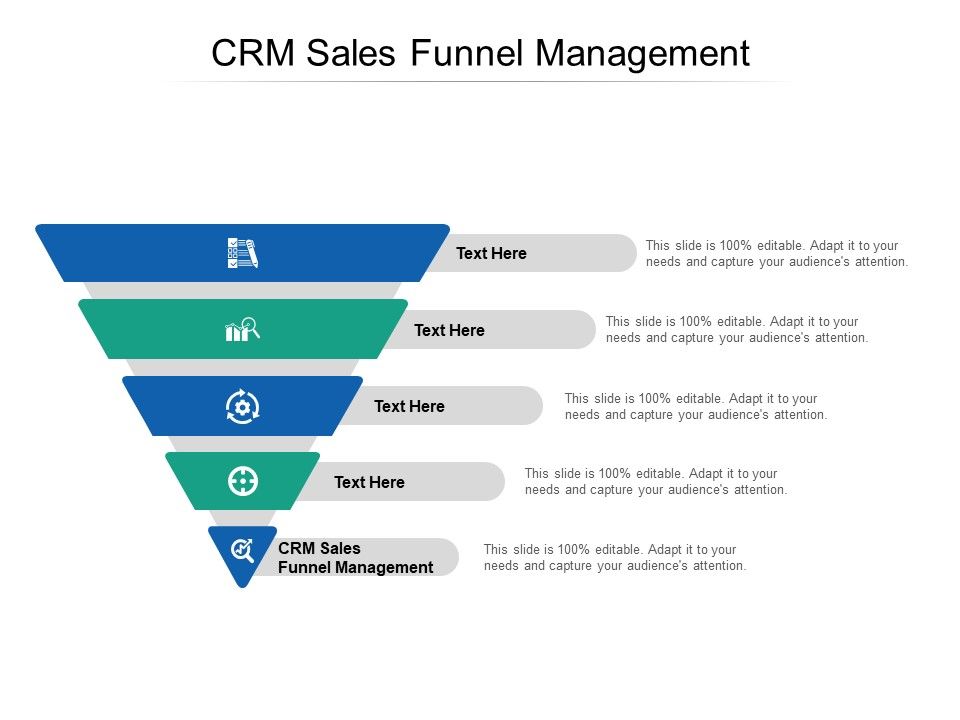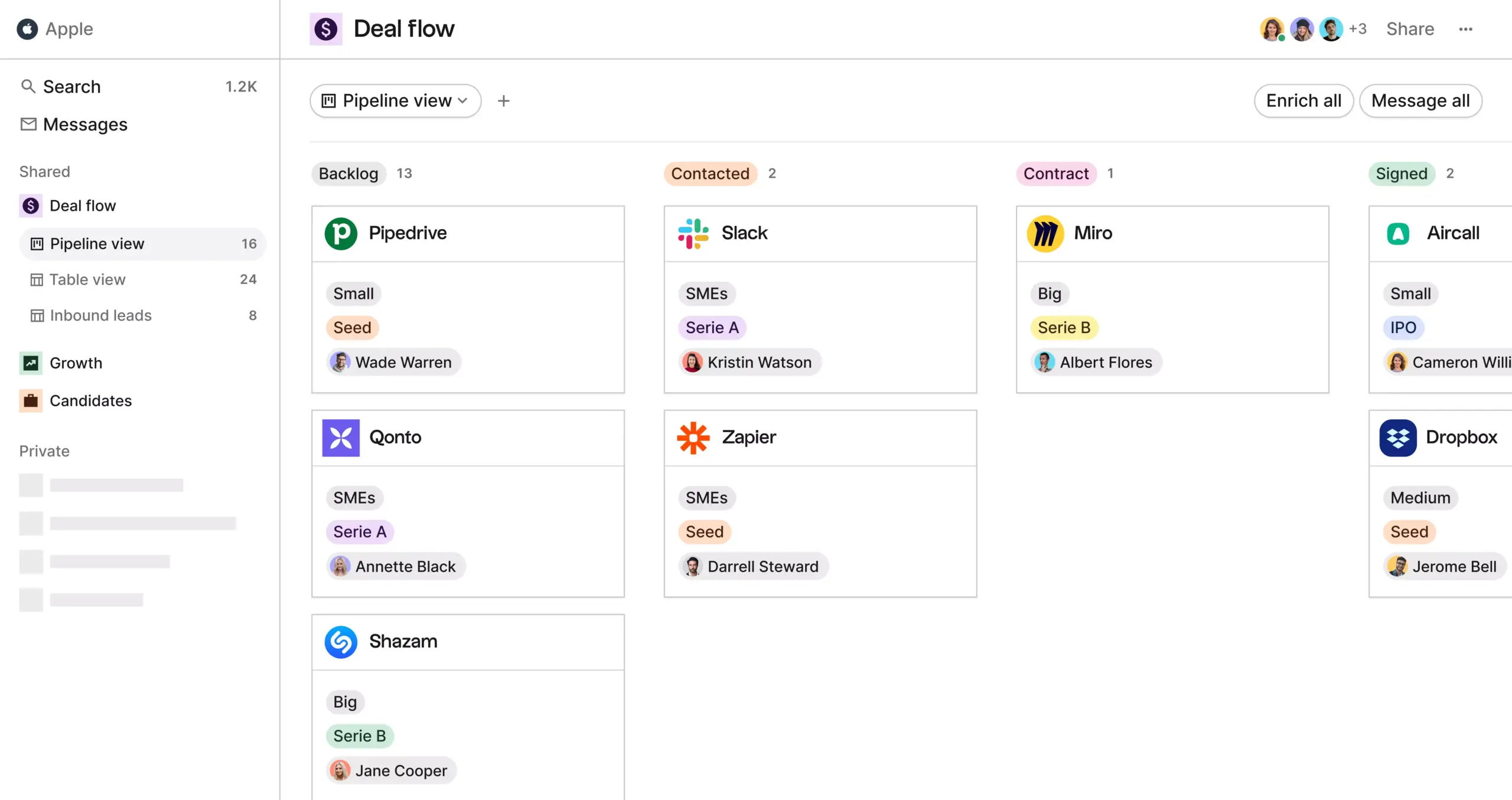Essential Small Business CRM Features: A Comprehensive Guide to Boosting Sales and Customer Loyalty
Introduction: Why Your Small Business Needs a CRM
Running a small business is a whirlwind of activity. You’re juggling everything from product development and marketing to sales and customer service. In this fast-paced environment, keeping track of your customers, leads, and interactions can feel like herding cats. That’s where a Customer Relationship Management (CRM) system comes in. It’s not just for the big guys; in fact, a CRM can be even more vital for small businesses looking to grow and thrive. This comprehensive guide will explore the essential small business CRM features that can revolutionize how you manage your customer relationships and propel your business forward.
Think of a CRM as your central nervous system for all things customer-related. It stores all the critical information about your customers, from their contact details and purchase history to their communication preferences and support tickets. This single source of truth eliminates the chaos of scattered spreadsheets, sticky notes, and forgotten email threads. With a CRM, you have a 360-degree view of each customer, enabling you to personalize your interactions, provide exceptional service, and ultimately, drive sales.
The Core Benefits of a CRM for Small Businesses
Before diving into the specific features, let’s understand the core benefits a CRM offers:
- Improved Customer Relationships: A CRM helps you understand your customers better, allowing you to build stronger, more meaningful relationships.
- Increased Sales: By streamlining your sales process and providing valuable insights, a CRM can significantly boost your sales figures.
- Enhanced Customer Service: Quickly access customer information to resolve issues efficiently and provide personalized support.
- Better Organization and Efficiency: Centralize all your customer data, eliminating manual data entry and reducing administrative overhead.
- Data-Driven Decision Making: Gain valuable insights into customer behavior and sales performance, enabling you to make informed decisions.
- Scalability: A CRM grows with your business, accommodating your expanding customer base and evolving needs.
Essential Small Business CRM Features: A Deep Dive
Now, let’s explore the key features that a small business CRM should offer. These features are the building blocks of effective customer relationship management.
1. Contact Management
At the heart of any CRM is contact management. This is where you store and organize all your customer and lead information. It’s more than just a digital address book; it’s a powerful tool for understanding your audience.
- Centralized Contact Database: Store all contact information in one accessible location, eliminating data silos.
- Contact Segmentation: Group contacts based on demographics, purchase history, behavior, or any other relevant criteria.
- Customizable Fields: Tailor the contact database to capture the specific information that’s important to your business.
- Data Import and Export: Easily import contact data from spreadsheets and export data for reporting or other purposes.
- Duplicate Contact Detection: Prevent the creation of duplicate entries, ensuring data accuracy.
A robust contact management system allows you to easily find, segment, and manage your contacts, enabling targeted marketing campaigns and personalized communication.
2. Sales Pipeline Management
Sales pipeline management is a crucial feature for any small business CRM. It helps you visualize and manage your sales process, from lead generation to deal closure.
- Visual Pipeline: See your sales opportunities at a glance, organized into different stages (e.g., Lead, Qualified, Proposal, Negotiation, Closed Won/Lost).
- Deal Tracking: Track the progress of each deal, including the value, probability of closing, and estimated close date.
- Task Automation: Automate repetitive tasks, such as sending follow-up emails or creating tasks for sales reps.
- Reporting and Analytics: Generate reports on sales performance, including conversion rates, deal value, and sales cycle length.
- Lead Scoring: Prioritize leads based on their likelihood of converting into customers.
With sales pipeline management, you can identify bottlenecks in your sales process, optimize your strategies, and close more deals.
3. Lead Management
Lead management is the process of capturing, nurturing, and qualifying leads. A CRM helps you streamline this process, ensuring that no potential customer slips through the cracks.
- Lead Capture Forms: Create web forms to capture leads from your website or landing pages.
- Lead Scoring: Assign scores to leads based on their behavior and engagement, helping you prioritize the most promising prospects.
- Lead Assignment: Automatically assign leads to the appropriate sales representatives.
- Lead Nurturing: Automate email campaigns and other communication to nurture leads and keep them engaged.
- Lead Qualification: Qualify leads based on their fit with your ideal customer profile.
Effective lead management ensures that you’re focusing your sales efforts on the most promising leads, maximizing your chances of conversion.
4. Email Integration
Email is a crucial communication channel for small businesses. A CRM with email integration allows you to manage your email communications directly within the system.
- Email Tracking: Track email opens, clicks, and replies to gauge engagement and effectiveness.
- Email Templates: Create pre-written email templates for common communications, saving time and ensuring consistency.
- Email Automation: Automate email sequences for lead nurturing, follow-up, and customer onboarding.
- Two-Way Sync: Synchronize your email inbox with the CRM, allowing you to view and manage your email communications in one place.
- Personalized Emails: Personalize your emails with customer information, making them more relevant and engaging.
Email integration streamlines your communication efforts, improves efficiency, and enhances your customer engagement.
5. Task and Activity Management
Staying organized and keeping track of your activities is essential for productivity. A CRM’s task and activity management features help you manage your daily activities and ensure that nothing falls through the cracks.
- Task Creation and Assignment: Create tasks for yourself or assign them to team members.
- Activity Tracking: Log calls, meetings, emails, and other interactions with customers and leads.
- Calendar Integration: Integrate your CRM with your calendar to schedule appointments and view your daily schedule.
- Reminders and Notifications: Set reminders for upcoming tasks and receive notifications to stay on track.
- Progress Tracking: Monitor the progress of tasks and activities to ensure they are completed on time.
With effective task and activity management, you can improve your productivity, stay organized, and ensure that your team is focused on the right priorities.
6. Reporting and Analytics
Data is your friend. Reporting and analytics features provide valuable insights into your sales performance, customer behavior, and overall business health.
- Customizable Dashboards: Create dashboards to visualize key metrics and track your progress.
- Pre-built Reports: Access pre-built reports on sales, leads, and customer interactions.
- Custom Report Creation: Create custom reports to analyze specific data points and gain deeper insights.
- Data Visualization: Visualize your data with charts, graphs, and other visual aids.
- Performance Tracking: Track the performance of your sales team and identify areas for improvement.
Reporting and analytics empower you to make data-driven decisions, optimize your strategies, and improve your business performance.
7. Mobile Accessibility
In today’s fast-paced world, you need access to your CRM data on the go. Mobile accessibility allows you to stay connected with your customers and manage your business from anywhere.
- Mobile App: Access your CRM data through a dedicated mobile app.
- Real-time Updates: View and update your data in real-time.
- Contact Access: Access contact information, call logs, and other relevant data.
- Task Management: Manage tasks and activities from your mobile device.
- Offline Access: Access your data even when you don’t have an internet connection.
Mobile accessibility keeps you connected and informed, regardless of your location.
8. Integrations
Your CRM should integrate seamlessly with other tools you use, such as email marketing platforms, accounting software, and social media channels. This integration streamlines your workflow and eliminates the need to switch between different applications.
- Email Marketing Integration: Integrate with email marketing platforms to sync contact data and automate marketing campaigns.
- Accounting Software Integration: Integrate with accounting software to track invoices, payments, and other financial data.
- Social Media Integration: Integrate with social media platforms to monitor brand mentions, engage with customers, and generate leads.
- Customer Support Software Integration: Integrate with customer support software to provide seamless support and track customer issues.
- API Access: Ensure the CRM has an API for custom integrations with other applications.
Integrations ensure that your CRM works seamlessly with your existing tools, streamlining your workflow and improving efficiency.
9. Customer Support and Training
When choosing a CRM, consider the level of customer support and training offered. A good CRM provider will offer comprehensive support to help you get the most out of the system.
- Help Documentation: Access detailed documentation, FAQs, and tutorials.
- Customer Support: Receive assistance from a dedicated support team.
- Training Resources: Access training videos, webinars, and other resources to learn how to use the CRM effectively.
- Onboarding Assistance: Receive assistance with setting up the CRM and importing your data.
- Community Forums: Connect with other users in a community forum to share tips and best practices.
Excellent customer support and training ensure that you can quickly learn and use the CRM effectively.
10. Security and Data Privacy
Data security and privacy are paramount. Choose a CRM that offers robust security features to protect your sensitive customer data.
- Data Encryption: Ensure that your data is encrypted both in transit and at rest.
- Access Controls: Implement access controls to restrict access to sensitive data.
- Regular Backups: Ensure that your data is regularly backed up to prevent data loss.
- Compliance with Data Privacy Regulations: Ensure that the CRM complies with relevant data privacy regulations, such as GDPR and CCPA.
- Security Audits: Choose a CRM that undergoes regular security audits to identify and address vulnerabilities.
Prioritizing security and data privacy safeguards your customer data and protects your business from potential risks.
Choosing the Right CRM for Your Small Business
Selecting the right CRM is a crucial decision. Here are some factors to consider:
- Your Business Needs: Identify your specific needs and requirements. What are your goals? What are your pain points?
- Budget: Determine your budget. CRM pricing varies, so find a solution that fits your budget.
- Ease of Use: Choose a CRM that is easy to use and has a user-friendly interface.
- Scalability: Select a CRM that can grow with your business.
- Integrations: Ensure that the CRM integrates with your existing tools.
- Customer Support: Consider the level of customer support and training offered.
- Reviews and Ratings: Read reviews and ratings from other small businesses.
- Free Trials: Take advantage of free trials to test out different CRM solutions.
By carefully considering these factors, you can choose a CRM that meets your needs and helps you achieve your business goals.
Implementing Your CRM: Best Practices
Once you’ve chosen a CRM, follow these best practices for successful implementation:
- Plan Your Implementation: Develop a detailed implementation plan.
- Clean Your Data: Clean your existing data before importing it into the CRM.
- Train Your Team: Train your team on how to use the CRM effectively.
- Customize the CRM: Customize the CRM to meet your specific needs.
- Integrate with Other Tools: Integrate the CRM with your other tools.
- Monitor and Evaluate: Monitor your progress and evaluate the effectiveness of the CRM.
- Get Feedback: Gather feedback from your team and make adjustments as needed.
A well-planned and executed implementation is essential for maximizing the benefits of your CRM.
Conclusion: Revolutionize Your Small Business with a CRM
A CRM is a powerful tool that can transform your small business. By implementing the essential small business CRM features discussed in this guide, you can improve customer relationships, increase sales, enhance customer service, and gain valuable insights into your business. Don’t let your customer data get lost in the shuffle. Embrace the power of a CRM and take your small business to the next level. It’s an investment that will pay dividends in customer loyalty, increased revenue, and overall business success.




